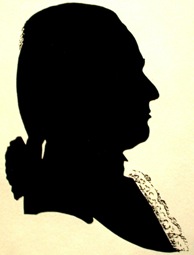Lebrun was born in Mannheim, the son of the oboist Alexander Lebrun, who was a member of the famous Mannheim orchestra and served as Ludwig’s teacher. In 1767, Elector Karl Theodor named Lebrun a Court Musician at the astonishingly young age of fifteen, a position Ludwig retained throughout the remainder of his life in spite of almost continual absence on concert tours.
In 1778 he married the "famous and great" singer Franziska Danzi, whose musical development was so fast that by the age of sixteen she was already a soloist with the Mannheim opera. She performed internationally before their marriage, but their touring together soon became continual, including all of the great cities of Europe. In 1778 they were in London, in 1779 Paris for several months, the Mercure praising Ludwig: "Far from sounding contrived on his instrument, there is apparent in his playing, especially in the high register, a soft, velvety quality, a sweetness which one can hardly believe possible. His execution is rare perfection, and his compositions which utilize the oboe bring together elegance, richness and variety."
The following two seasons they were back in London. In 1784 they were in Paris, and in 1785 in Vienna, where Leopold Mozart repeatedly wrote with musical approbation but characteristic envy regarding their financial success.
International success reached a high point in the first trip to Berlin in 1789. On a return trip in the fall of 1790, Ludwig fell ill from inflammation of the liver and exhaustion from the trip, and died

Lipowsky said that Lebrun "belonged, with his wife, to the musical wonders of the world". Schubart said: "One of the greatest musical geniuses that I have ever come across was [Lebrun] ... who has attained the maximum in perfection on the oboe. His ornaments, inventions, and cadenzas are most inimitable. He overcomes all difficulties of his instrument, plays easy and difficult works, inspires wonder and sweet feeling, expresses foreign works as well as his own, and is, in a word, an original mind." Schubart called Lebrun "a true magician on the oboe" and "a genuine musical genius."
While most contemporary comment centered on Lebrun's performance, it is his remarkable compositions for which he is remembered today. Schubart said: "His compositions are exceedingly fine and sweet, like drops of nectar. He has produced ballets and chamber pieces which are evidence of the most refined taste. The ethereal beam of genius flickers in everything that he writes, that he performs. He has thus rightly earned the admiration of France and Germany."
Lebrun’s Concerti for Oboe
Lebrun’s Chamber Works & Concerti for Flute